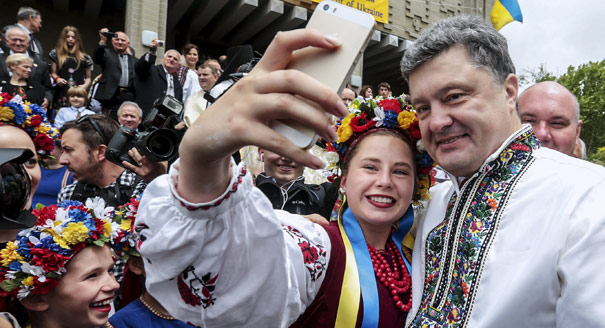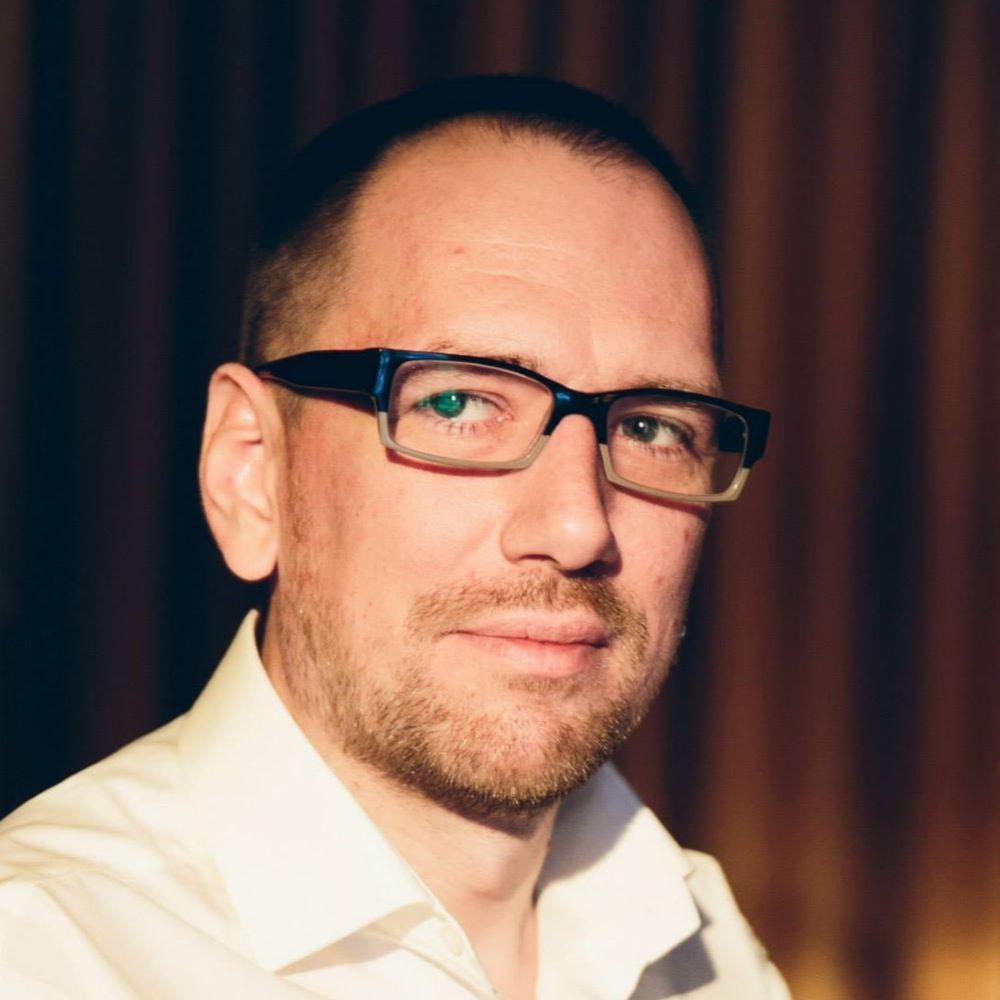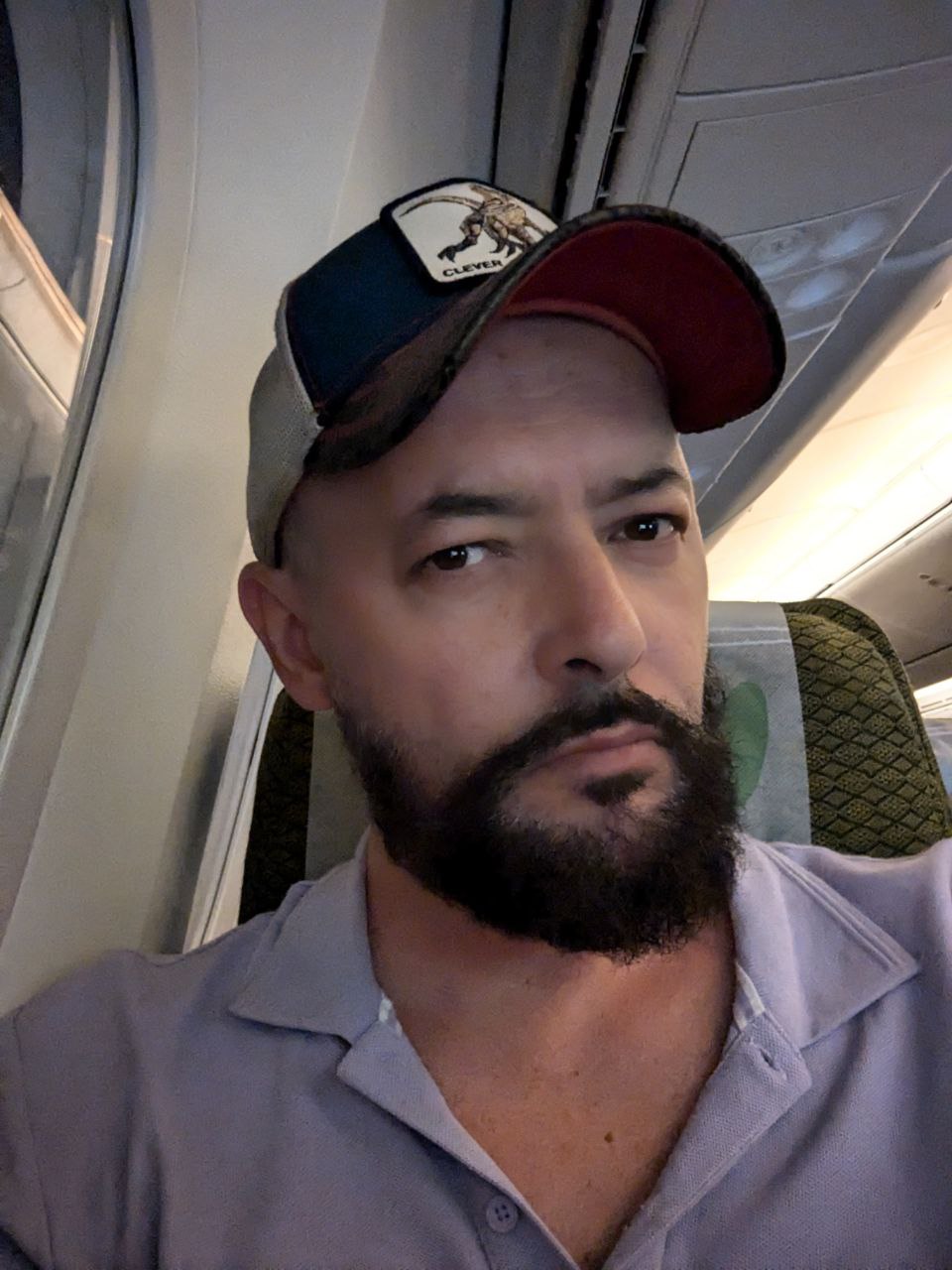The pace of change in the global economy suggests that the IMF and World Bank could be ambitious as they review their debt sustainability framework.
C. Randall Henning
{
"authors": [
"Konstantin Skorkin"
],
"type": "commentary",
"centerAffiliationAll": "",
"centers": [
"Carnegie Endowment for International Peace",
"Carnegie Russia Eurasia Center"
],
"collections": [],
"englishNewsletterAll": "",
"nonEnglishNewsletterAll": "",
"primaryCenter": "Carnegie Russia Eurasia Center",
"programAffiliation": "",
"programs": [],
"projects": [],
"regions": [],
"topics": [
"Economy"
]
}
Source: Getty
For Ukraine’s patriotic voters, the war with Russia is the defining issue in the upcoming presidential election. The country is choosing a leader at a time when being the commander in chief is not simply a title and honorary regalia, but the president’s primary responsibility. This factor may win incumbent President Petro Poroshenko a second term.
He started the election campaign with an enormous “anti-rating”—the local term for the percentage of voters who won’t cast their ballot for a candidate under any circumstances. But now Ukrainian President Petro Poroshenko has surged ahead and become one of the front-runners in Ukraine’s March 31 presidential election. And his victory no longer seems like an impossibility.
Poroshenko’s rapid advance was possible because, today, the incumbent president is essentially the only noteworthy politician appealing to patriotic voters. Just a few months ago there were others ready to compete for this segment of the Ukrainian electorate. But now Poroshenko has virtually knocked them out of the race.
Despite a recent corruption scandal and a mixed record on reform, Poroshenko has become Ukraine’s top patriot, a role that was not an obvious fit for him. That may win him a second term as president, a significant feat in the country that has reelected an incumbent president only once.
To understand how Poroshenko managed this, it is important to examine whom he has defeated. Until recently, one of his top competitors for patriotic voters was Anatoliy Hrytsenko, leader of the center-right Civic Position party. In a political system dominated by people from the nomenklatura and big business, Hrytsenko is an unusual figure: an intellectual patriot with no connections to the country’s main oligarchs.
He also has experience: Hrytsenko led the influential Razumkov Center think tank and served as defense minister under the pro-Western president Viktor Yushchenko. In the latter post, he advocated strongly for Ukraine building ties with NATO.
In the current campaign, Hrytsenko clearly takes pride in his image as front-runner among the long-shot candidates—a position that emphasizes his unwillingness to play dirty in order to achieve victory in Ukraine’s corrupt politics.
Hrytsenko faced dramatic defeats in both the 2010 and 2014 votes. But the current election long appeared to be his big break. Deep public dissatisfaction with the main candidates’ post-Soviet cynicism made Hrytsenko’s emphasis on returning morality and patriotism to politics a winning bet.
And despite the traditional disunity of Ukraine’s national democrats, Hrytsenko has succeeded in uniting a group of pro-European politicians with significant roles in the Yushchenko administration behind him. For example, one of the managers of his campaign is Viktor Trepak, a security service general famous for revealing corruption in ousted president Viktor Yanukovych’s Party of Regions. That revelation even placed Yanukovych’s former political consultant Paul Manafort—then Donald Trump’s presidential campaign chair—on the political chopping block in the United States.
Euro-Atlanticist Hrytsenko also appeared to have support from the West. Rumor held that he was the favored candidate of Ukraine’s foreign donors. Half a year ago, the Economist sympathetically described him as the most honest Ukrainian presidential candidate. “His support has been rising despite his lack of money or access to the oligarch-controlled media. Some voters still crave honesty in their politicians,” the magazine wrote.
As of summer 2018, Hrytsenko held second place in the presidential polls—behind former prime minister Yulia Tymoshenko and ahead of the incumbent president. It seemed like Hrytsenko was guaranteed a spot in the election’s inevitable second round. It even appeared he could win.
But that’s when the problems started. Ukraine’s protest electorate proved unreliable and easily changed its preference based upon the candidates’ personal charm. Hrytsenko—a morose introvert—simply could not compete with the populism of Tymoshenko or professional actor-turned-politician Volodymyr Zelenskiy.
Finally, Poroshenko delivered a surprising but crushing blow to Hrytsenko’s popularity among patriotic voters: he focused his campaign on military and patriotic themes, beginning by declaring a month of martial law in November 2018 after a naval confrontation with Russia. At first, the declaration was met with skepticism. But it nonetheless consolidated the patriotic camp around Poroshenko.
After that, the president continued to build his image as the country’s “top patriot.” He created a national Orthodox Church independent from Moscow and enshrined Ukraine’s Euro-Atlantic path in the constitution. By March, these steps had launched Poroshenko to third or even second place in the polls. Meanwhile, Hrytsenko fell to fifth place. Importantly, Poroshenko began leading in the country’s more nationalistic western region, a key source of legitimacy for a politician running on a patriotic platform.
Hrytsenko wasn’t the only one harmed by Poroshenko’s patriotic campaign. Another pro-European candidate, Lviv Mayor Andriy Sadovyi, also suddenly found himself a political outsider. Hailed for his success turning his western Ukrainian city into a European tourism hub, Sadovyi announced his candidacy for president in October and launched his career as a national politician. But after receiving weak support, he eventually dropped out of the race and endorsed Hrytsenko.
That obviously helps the former defense minister. Nonetheless, according to polls, together they receive only around 5–6 percent of the vote, so their unification changes little in the election.
Other competitive pro-Western candidates have also failed to materialize. Svyatoslav Vakarchuk, a popular rock musician long considered a “new face” and a potential “European candidate” for the presidency, ultimately decided not to run. Meanwhile, the position of the far right appears even weaker: the nationalists’ unified candidate, Ruslan Koshulynsky of the Svoboda Party, finds himself at the bottom of the top ten presidential contenders.
Indeed, the time for “national patriotic” politicians has passed. The political descendants of the pro-Western People’s Movement of Ukraine and Yushchenko’s Our Ukraine party have met the same fate as the descendants of Yanukovych’s pro-Russian Party of Regions. Both ideological groups failed to advance a single, strong candidate and essentially handed the political field over to populists.
For Ukraine’s national democrats, personal and group ambitions have once again proven more important than common goals. Squabbles and failure to negotiate have undermined their principles and honesty. After losing the presidential election, they will almost certainly fail to unite during the October 2019 parliamentary vote.
Thus, having monopolized the patriotic vote, Poroshenko now aims to present himself as the only guarantor of both Ukraine’s European choice and its territorial integrity amid Russian aggression. Even the corruption- and nepotism-tinged roots of his political career cannot undermine this image.
In recent weeks, investigative journalists revealed that one of Poroshenko’s close associates was involved in a corrupt scheme to smuggle parts for military equipment from Russia and sell them at an inflated price to the Ukrainian military and state defense enterprises. Poroshenko fired the man in question, but the stink of corruption stuck around. The scandal shined a rare light on the degree to which graft penetrates even the president’s inner circle. In response, an influential group of reformist lawmakers led by former journalists Mustafa Nayyem and Serhiy Leshchenko chose to leave Poroshenko’s parliamentary fraction.
Many supporters saw the scandal as a new chance for Hrytsenko. But it is worth remembering that corruption is not the defining issue for patriotic voters in this election; rather, the war in Ukraine’s east is. Ukraine is choosing a leader at a time when being commander in chief is not simply a title and honorary regalia, but the president’s primary responsibility.
The previous presidential election, in May 2014, occurred at the start of the conflict, when society was not fully cognizant of the country’s new realities. Now, however, national defense is the top political issue.
As a result, many Ukrainians perceive their country as a besieged fortress and think it is currently unacceptable to replace the leader—despite his obvious flaws. It is particularly indicative that many of Poroshenko’s supporters believe that the illegal schemes discovered by investigative journalists served to strengthen the army and, thus, were acceptable for a country at war.
With election day fast approaching, the issues of corruption and ineffective civic control are fading into the background. Meanwhile, the field of acceptable candidates has narrowed. It is entirely possible that this will play a decisive role on March 31. At the last moment, the Ukrainian voter may decide not to change the commander in chief.

Konstantin Skorkin
An independent journalist.
Carnegie does not take institutional positions on public policy issues; the views represented herein are those of the author(s) and do not necessarily reflect the views of Carnegie, its staff, or its trustees.
The pace of change in the global economy suggests that the IMF and World Bank could be ambitious as they review their debt sustainability framework.
C. Randall Henning
Despite considerable challenges, the CPTPP countries and the EU recognize the need for collective action.

Barbara Weisel
Integrating AI into the workplace will increase job insecurity, fundamentally reshaping labor markets. To anticipate and manage this transition, the EU must build public trust, provide training infrastructures, and establish social protections.

Amanda Coakley
The fear that Europe might ‘fall behind’ rival economic powers has long shaped European integration. In the present phase of global disorder, this fear has intensified.
Scott Lavery
The Russian army is not currently struggling to recruit new contract soldiers, though the number of people willing to go to war for money is dwindling.

Dmitry Kuznets